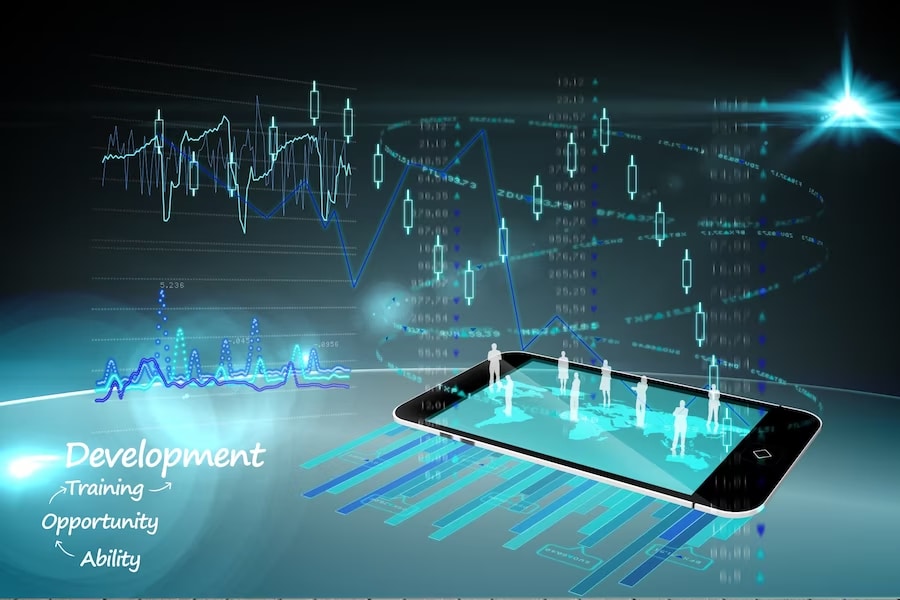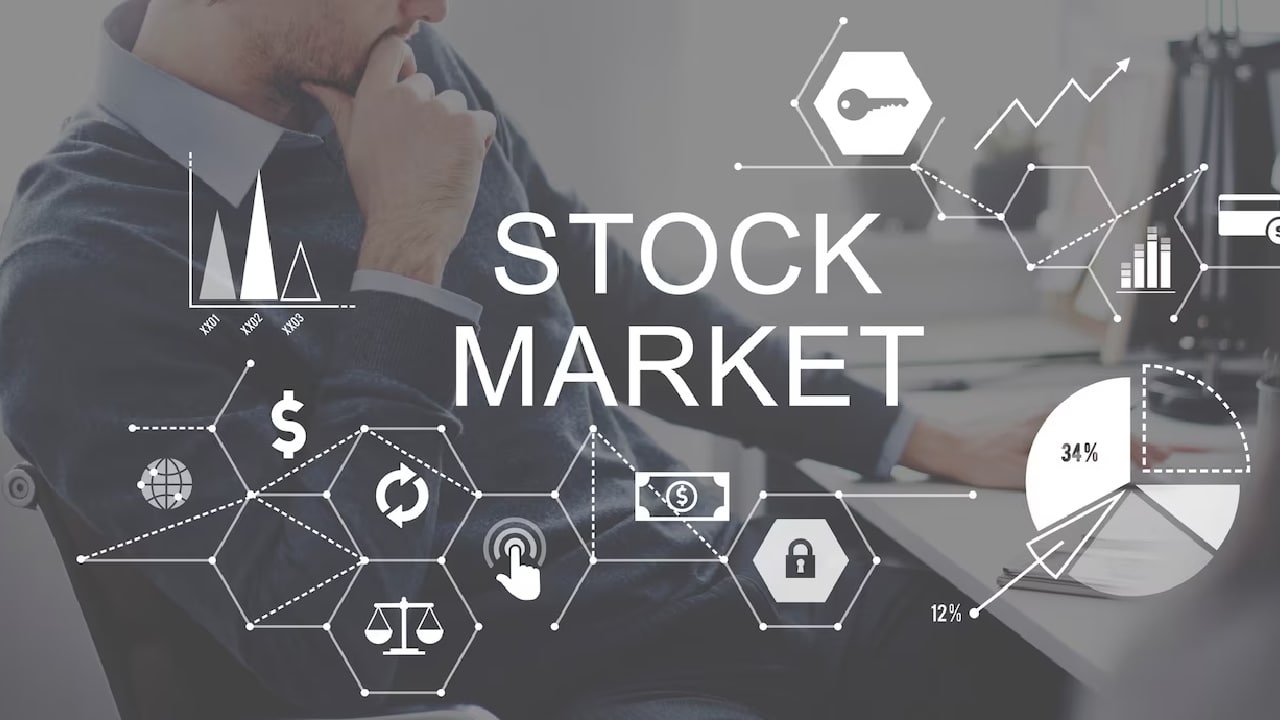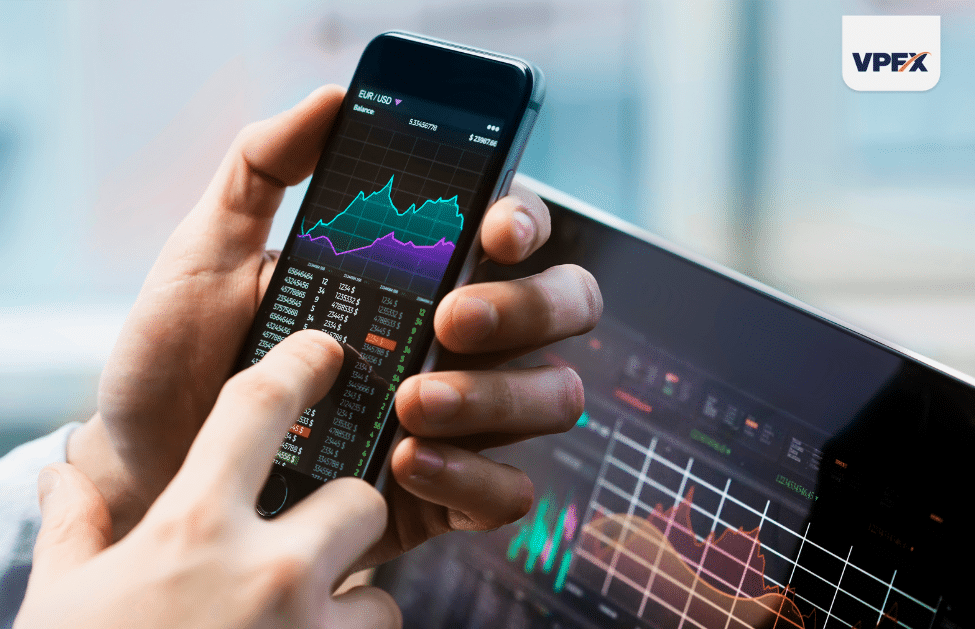How Technology is Shaping the Future of Markets
Technology has always been a lead driver of market change, but the velocity and dimension with which it does so today are incomparable. The rapid development of digital tools, artificial intelligence, data analytics, and automation has reworked consumer behavior, redefined business, and at the same time, has created altogether new markets.
Understanding the importance of technology in financial markets is key for businesses, consumers, and policymakers all trying to stand firm on shifting sands in this timely landscape.
1. E-commerce Revolution
Major events and transformations that technology has brought into the marketplace include the e-commerce revolution and an increase in digital marketplaces. This unleashed the capability to buy and sell goods on the Internet and opened considerable avenues for business enterprises of different sizes. Entry barriers have been torn down by the big companies, allowing small businesses to find their customers anywhere in the world without opening any expensive stores.
Digital payment systems ensure a fast and accessible transaction. It is hassle-free for the consumers: they shop comfortably sitting at home, get same-day delivery, and return the product without any hassle. More than this, voice search, AR, and VR will, in the future, take the revolution of e-commerce to the next level with trading technology.
2. AI and Machine Learning
Business AI analysis helps analyze vast volumes of data, recognizes patterns, and aids in informed decision-making. For instance, AI can enable businesses to offer customers a personalized experience whereby customers will be offered products based on their browsing history or buying habits. This offers a very personal experience that will improve customer satisfaction and loyalty for the creation of repeated business. In addition, AI automates all other operations.
Simple examples of routine tasks executed by AI-powered systems include data entry, customer service queries, and even inventory. What is it, among others, going to lead to? It enables cost reduction efficiency improvement and releases employees to higher-level strategic tasks. The future of AI in markets is even more convincing. AI will increasingly be used for predictive analysis to help firms forecast demand, optimise pricing strategies, and manage supply chains more precisely.
3. Blockchain and DeFi Blockchain Technology
One of the major hallmarks of blockchain is its tendency toward enabling self-driving and transparent systems. This holds extreme importance in the financial, real estate, and supply chain management domains. DeFi lends, borrows, and trades digital assets with the help of smart contracts. These self-executing contracts have the agreement to terms written directly into lines of code.
Digital transformation in finance reduces intermediaries, cuts down on costs, and, hence, facilitates quicker transactions. In supply, blockchain ensures product transparency and traceability. Each firm can track the movement of a product from the production stage right up to delivery and confirm the authenticity of the product to reduce fraud.
4. Big Data and Analytics
In today’s world, business entities use big data and analytics to understand customer behaviour, market trends, and operational efficiency. Big datasets can be mined for patterns and correlations in a manner previously unimaginable. A very good example is the way retailers use data to gain insights into customer preferences to optimize inventory management.
Transaction data can be used to uncover fraud committed by financial institutions. Healthcare providers can determine how to offer better treatments via data-informed treatment plans. Organizations that can harness the power of big data will be at a decided advantage, able to more easily meet customer needs and changes in the market.
5. Automation and the Future of Work
Automation with the use of AI, robotics, and machine learning has redesigned industries in such a way that processes are made smooth, operations are cost-effective, and productivity is at its maximum. Though automation had applications earlier in manufacturing-type industries, today, it finds usage prominent in retail, finance, and health. Companies in the retail sector are now using automated warehouses and drones for order fulfilment and delivery. In health, the robots carry out whatever assistance is required during surgeries, while the diagnosis of diseases is done with the help of AI.
It may find application in AI-driven algorithmic trading in stocks, store credit, and risk management by financial institutions. Automation will keep propagating fear about job security and loss. The more the processes get automated, the more chances one has of losing one’s job in typically human resource-intensive fields. How to reskill the workers and create new job opportunities in fields requiring imagination, critical thinking, and emotional intelligence becomes a challenge.
6. IoT: Internet of Things
The definition of IoT is an increasingly integral network consisting of things and devices that, through the internet, are connected and communicate. It is really an excellent innovative solution for industries like healthcare, manufacturing, agriculture, etc. It truly enables timely data collection and analysis. In the health sector, for example, one will be connected to IoT devices with active trackers, wearables, and smart medical devices that are in operation for many hours a day to allow continuous health monitoring.
Thus, it helps people seek treatment in accordance with their needs, which is far better than the usual way of dealing with the doctor or health worker at a later stage when the problem has already prevailed. In the manufacturing world, these sensors keep a tab on performance while allowing one to anticipate maintenance and reduce lost time.
7. 5G and the Future of Connectivity
Next-generation wireless-5G-promises to disrupt markets with its promise of a speedier and more reliable online connection. It will be 100 times faster than today, thus opening up the possibilities for technologies and applications unimaginable until today. One major consequence of 5G will be regarding the role of the Internet of Things.
With the faster and more reliable connection, devices in the IoT will be able to speak to each other in real time, thus enabling smart cities, autonomous cars, and even remote surgery.
5G will further enable AR, VR, and AI applications to become even more immersive, thus enabling better experiences in industries that range from entertainment and education to retail. 5G makes the processing of data faster for companies, hence enabling them to move at a faster pace and serve their customers even better.
8. Sustainability and Green Technology
With the increase in concern for climate change and environmental sustainability, technology provides companies with opportunities to reduce waste and optimise energy use. It improves supply chain efficiency, reduces emissions, and minimises waste with the help of machine learning and big data analytics.
With the help of precision farming technologies, the application of water, fertilisers, and pesticides in the agricultural industry is greatly reduced. Consumers are increasingly conscious about the kind of products and practices that go into making a product and continue to reward businesses that can respond to this. Green technology development will be one of the big forces for market transformation over the next torrid years with all types of Fintech innovations in stock trading.
The Bottom Line
Technology has, so to say, changed the very nature of markets and brought with it new opportunities and challenges for innovation from businesses, consumers, and governments. In the future, this will involve a shift towards e-commerce, digital marketplaces, and the transformational powers brought in by AI, blockchain, and IoT.
Yet, at the same time, such technological changes certainly promise enormous potential for growth and efficiency improvement but also raise several pertinent questions regarding what the future has in store for work, data privacy, and sustainability. The companies will have to take up the technology while actively overcoming all the above-mentioned challenges with responsibility for success in a dynamically increasing environment.





